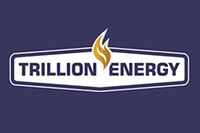Russia has set a record for the amount of oil that it produced in 2018, but the country plans to scale back output in the first half of 2019.
In 2018, Russia produced 11.6 million barrels of oil per day, leaving the country to claim a post-Soviet record high.
During the first half of 2018, the volumes of oil that Russia could produced were capped as part of an agreement with the Organization of the Petroleum Exporting Countries (OPEC) in order to support prices. However, once the market rebounded, the producers scaled back their cuts, with Russia rapidly raising output to reach 11.45 million barrels per day in December.
“Russia was the clear winner” from that deal, said Dmitry Marinchenko, oil and gas director at Fitch Ratings. “[It got] billions of rubles in extra oil revenues — and the country didn’t even sacrifice much of its crude production in return,” he added.
2018 proved to be the year that the country would surpass its previous annual record of approximately 10.98 barrels per day, which was set in 2017. Russia produced 555.838 million tonnes in 2018, in comparison with the 547 million tonnes in 2017.
In fact, all of Russia’s major oil companies increased their production in December in yearly terms.
For example, Rosneft (MCX:ROSN), the world’s largest oil producer, raised its production by 4.6 percent year-on-year in December, while Lukoil (OTC Pink:LUKOY) and Surgutneftegaz both increased their output by 2.5 percent.
Additionally, Russian oil pipeline exports were up 4.496 million bpd in December, versus the 4.297 million bpd output in November.
However, the Eurasian country plans to decrease its oil production in the first part of 2019, as it has agreed cut 228,000 barrels a day through a new agreement planned out by OPEC + coalition.
Moving forward, the country expects its total oil output to remain much of the same over the full year. Energy Minister Alexander Novak noted that producers will spend the latter part of 2019 making up for any losses experienced during the first-half of the year.
He added that he does not see a reason to extend the cuts that have already been agreed upon and that the effects of the deal on market balance will be visible by as soon as January or February.
Despite this, fears of a resurgent global glut may create a less-favorable result for Russia this time around.
“OPEC and its allies will probably need to extend their output-cut deal beyond the first half,” Marinchenko said. “If they need to sacrifice some of their barrels for the sake of stability, they will do it,” he added.
As of 2:20 p.m. EST on Wednesday (January 2), oil was trading at US$46.42 per barrel.
Don’t forget to follow us @INN_Resource for real-time news updates!
Securities Disclosure: I, Nicole Rashotte, hold no direct investment interest in any company mentioned in this article.





